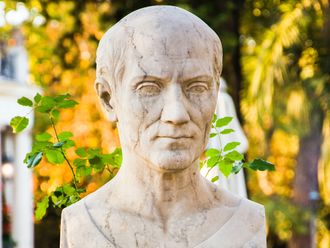
The best way to learn? Ask questions.
Click start to play today’s Spell It, where we explore the impact of questioning in the ‘realm’ of education and science.
According to a December 2020 report in the US-based business news website Forbes, American Nobel Prize laureate and physicist Isidor Rabi showed just how important questioning is, when he said: “My mother made me a scientist. ‘Izzy’, she would say, ‘did you ask a good question today?’”
Learning by asking questions goes all the way back to the Socratic questioning method, in ancient Greece. It was named for the philosopher Socrates, who preferred to focus on discovering answers by asking students questions. The practice usually led to the exploration of complex ideas, and along the way, people exposed deeply held beliefs, uncovered assumptions and recognised hidden contradictions.
It's a similar mode of learning in Jewish yeshivas, or in their centres of education. Often, a student studies with a debate partner in a learning approach called ‘havruta’. Unlike in traditional classrooms, where a teacher lectures and a student is meant to memorise the information, havruta compels students to analyse and explain the material themselves. As they do, they are able to point out errors in each other’s’ reasoning and sharpen ideas by questioning them.
According to an April 2019 study in the Journal of Problem-Based Learning, the type of questioning conducted in havrutas has been found to improve students’ motivation, independent thinking and their ability to express complex ideas.
Questioning in academia is one thing – but making it part of the way we approach life is another. From the time we’re toddlers, we naturally question the reasons behind everything we can see, smell, taste or touch. Children’s minds are innately ready to inquire into the deepest mysteries of life, but childhood curiosity dwindles as time passes, and people get into the structured roles of formal schooling.
Innovators and leaders around the world know that finding our way back into that frame of inquiry is necessary for progress. Australian-American business consultant Peter Drucker, who was dubbed by US-based magazine Businessweek as “the man who invented management”, talked about this in his classical book The Practice of Management. He warned that the most important and difficult job is not to find the right answers but the right questions, and said: “There are few things as useless, if not dangerous, as the right answer to the wrong question.”
The former CEO of Google Eric Schmidt was also quoted as saying: “We run this company on questions, not answers.”
Game-changing questions, whether in science, management, or everyday life, help create an environment where there are endless possibilities.
What do you think? Play today’s Spell It and tell us at games@gulfnews.com.




